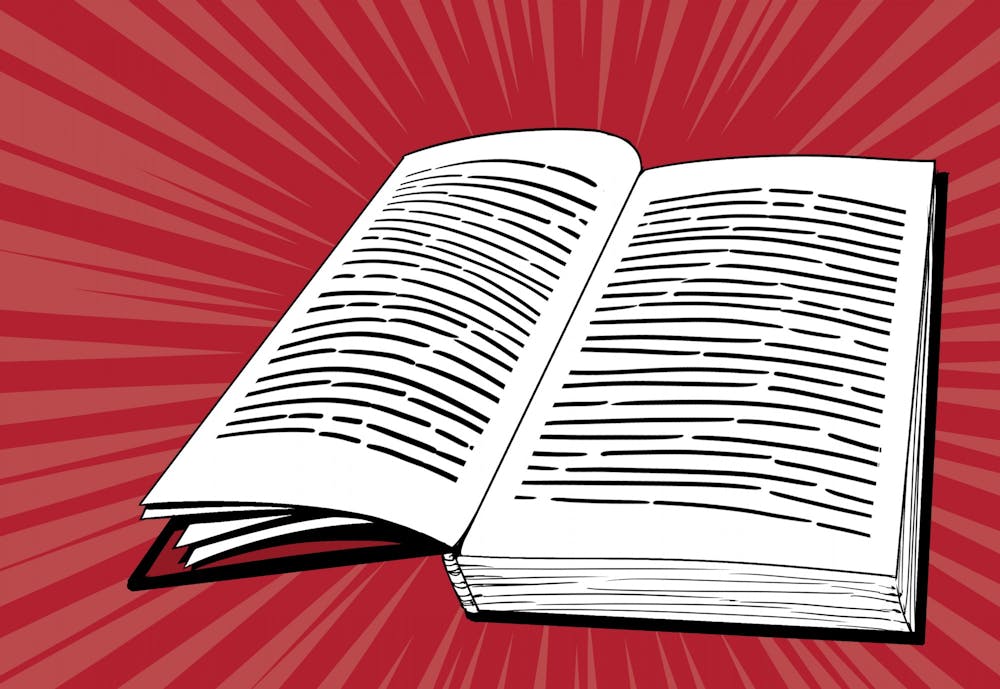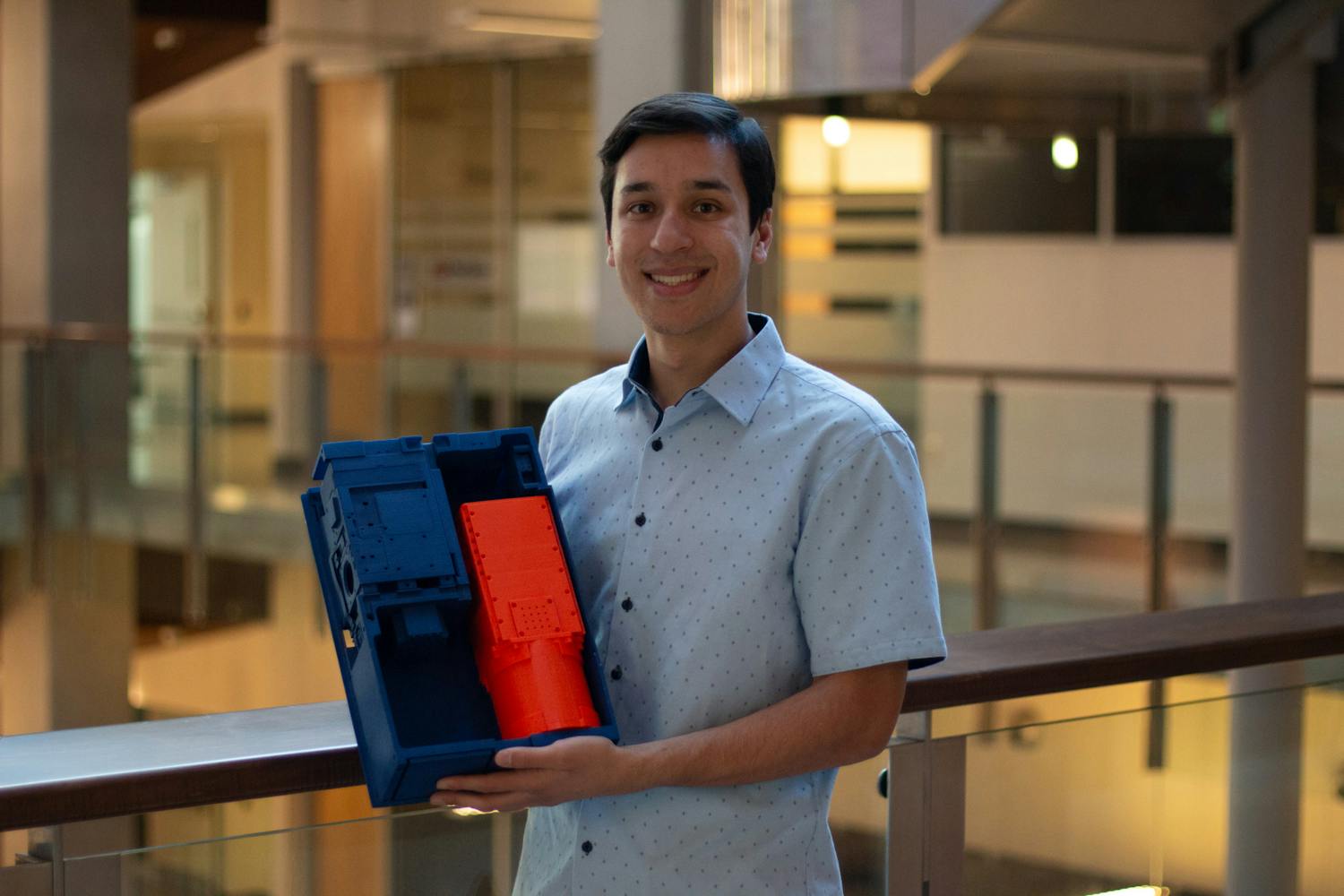In my time at ASU, I've noticed a move to define crucial life skills in terms of literacy. Students are told that they must know how to economize, and thus be financially literate, or to have the capability to use common programs, thus having computer literacy. I've even seen the odd denotation of empathy as "emotional literacy".
However, I'm curious about the state of plain-old reading literacy among college students. I have a feeling that if you're an ASU student reading this column for your own pleasure and edification, that you might be an exception to the rule.
The data seems to bear my concern out. Since the Great Recession, there has been a marked decrease in humanities majors, which largely favor the book, and an increase in majors in the STEM disciplines, which largely favor the technical article. Those entering college today have read fewer books than previous generations of freshmen. University libraries are also being used much less in general.
What's most astonishing to me, at least, is that students aren't even doing the assigned reading in classes that they pay for — and unfortunately, my fellow humanities and social/behavioral science majors have to take the hit in this respect.
A 2012 study at a liberal arts college showed that more than half of the students surveyed didn't do assigned reading by their own admission, and of those that claimed to have read, more than half couldn't exhibit basic comprehension of the material.
I think that there is a growing, malign tendency toward favoring a perceived student choice over academic rigor in universities. Concessions such as "experiential learning" seem to compensate for deficiencies in student literacy more than they augment the learning process.
Even if students were freely choosing fewer and less difficult texts, schools giving in to this trend would still be operating on faulty logic. After all, students are, by our own admission, so ignorant that we are willing to part ways with thousands of dollars in order to learn.
Still, don't get me wrong. There are multiple, valid reasons why students don't do assigned reading. They might lack the background knowledge necessary to understand the context, they might not yet have the disciplinary skills to focus on what parts of reading are most relevant, or they might not see the importance of the assignment to their lives. If they work, that leaves limited time for assigned reading, let alone reading for pleasure.
I could blame our extremely unequally funded public education system, which does not adequately serve poor and ethnic minority groups' literacy needs, or a modern work environment that demands odd and inconsistent hours, but that's not my primary interest. I really want to know what happens to students and, ultimately their society, when not even the best educated are confident in their reading skills.
George Justice is a professor of languages and cultures at ASU's College of Integrative Science and Arts. Justice said that while non-literary forms of communication are better ways of conveying information for some topics, the benefits of reading are great and shouldn't be given up lightly.
"What a great novel can do is even very different from what a great movie can do," Justice said. "It's my job to put students in a position where when they read those books, they understand why it's not just a story that happened to be told in prose on the page."
He said that students view reading as an imposition to their studies because they don't have enough practice reading going into college.
"Reading seems like a task that's made doubly complicated when textbooks are not only boring but useless," he said. "Schools need to make reading a habit for young people. Parents need to read to kids when they're very young."
However, Justice said that individual persons and institutions cannot be blamed for our literacy problem.
"I blame a society that is structured on oppression and unfairness and deep income inequality which is absolutely reproduced," he said. "Our education system is designed to intensify and perpetuate the racial, gender, and income inequalities that went into constructing it."
Justice says that the changing job market has also indirectly affected students' reading skills.
"Unfortunately, because there's a lot of social pressure against humanities based reading courses, many more students are taking these skill based, pre-professional and professional courses of study, which are actually not the best to prepare them for what their life is going to be like," Justice said.
While reading does have a crucial place in the career field, Justice also said that reading should be recognized as a good in itself.
"I certainly believe greater literacy skills is really important (in careers)," Justice said, "but it's also really important because it uncovers a whole world of opportunity, analysis, thinking ability and writing ability for students who can go off and change the world for the positive if they have it."
I think that the professor's last point is extremely important. Literacy is a powerful weapon against oppression. There's a reason why slaves were not permitted to read, and why contemporary U.S. prisons have long lists of forbidden literature. To know how to read at a level beyond what is required at work, and to have access to literature is to be free from ideological domination by others, and to be free to make up one's own mind.
In Karl Marx's eleventh thesis on Feuerbach, he wrote that "philosophers have only interpreted the world in various ways; the point is to change it." One way to read this thesis is to conclude that we should put down frivolous philosophical and literary pursuits, roll up our sleeves and change the world.
The other way to read his famous declaration, the way that I hope we will read it, is that we should use philosophy and critical thought in our practice of changing the world, and to recognize that without the knowledge and reason derived from literature, we will never free our minds.
Reach the columnist at smisceni@asu.edu or follow @IMiscenich on Twitter.
Editor’s note: The opinions presented in this column are the author’s and do not imply any endorsement from The State Press or its editors.
Want to join the conversation? Send an email to opiniondesk.statepress@gmail.com. Keep letters under 500 words and be sure to include your university affiliation. Anonymity will not be granted.
Like The State Press on Facebook and follow @statepress on Twitter.




